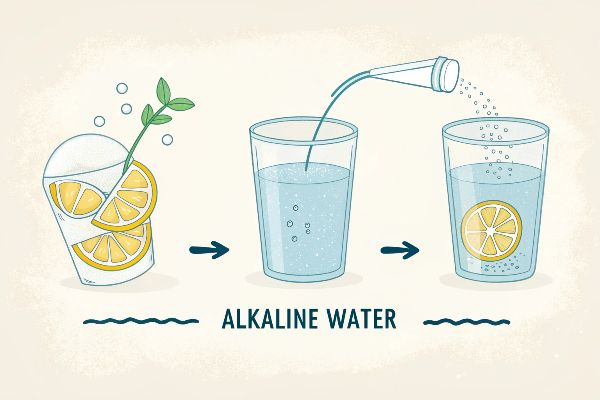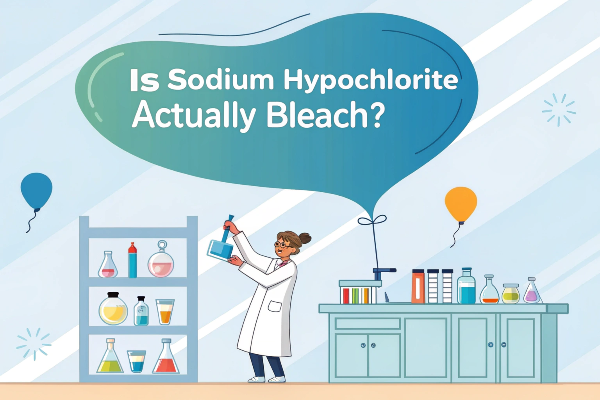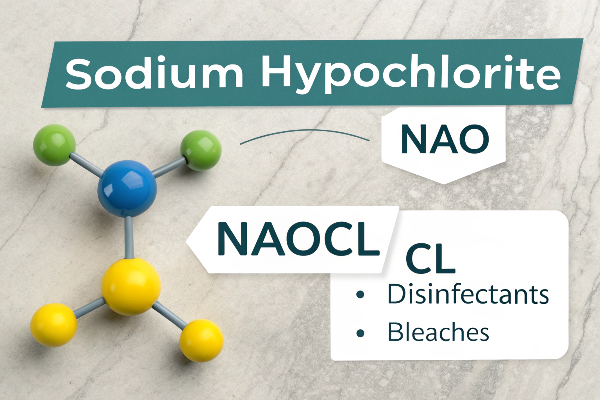In my role as the CEO of a company specializing in sodium hypochlorite titanium anode, I’m often approached with various queries about sodium hypochlorite. A frequent question that pops up, especially from those involved in pool maintenance, is about the feasibility and safety of using sodium hypochlorite in swimming pools. Let me share my insights and expertise on this topic.
Sodium hypochlorite, popularly known as liquid bleach, is indeed a favored choice for sanitizing pools. Its proven effectiveness in killing bacteria and algae makes it an ideal option for ensuring a clean and safe swimming environment.
As someone deeply invested in the chemical industry, I understand the importance of maintaining a pristine pool environment. The choice of sanitizer is pivotal, not just for clarity and aesthetics but, more importantly, for the health and safety of swimmers.

Why is Pool Sanitization Critical?
Sanitization is the backbone of a healthy swimming environment. It’s about more than just clear water; it’s about safeguarding the health of every individual who dips into the pool. Unsanitized water can be a breeding ground for harmful bacteria and viruses, leading to various health issues.
Sodium hypochlorite plays a crucial role here. Its strong disinfectant properties make it an excellent choice for eliminating potential health risks in pool water.

How Does Sodium Hypochlorite Function in Pools?
When added to water, sodium hypochlorite breaks down into several components, including hypochlorous acid. This acid is the active component that effectively neutralizes harmful microorganisms in the pool, ensuring a safe swimming environment.
The process, though chemically complex, is efficient in maintaining the hygienic quality of pool water. It’s a testament to the power of chemistry in everyday applications.

Benefits of Sodium Hypochlorite in Pool Maintenance
As a leader in the chemical manufacturing industry, I can attest to the numerous benefits of using sodium hypochlorite in pools. Its effectiveness against a broad spectrum of microorganisms is unparalleled. Additionally, it’s easy to apply and provides quick results, an essential factor in busy pool settings.
Its cost-effectiveness is another significant advantage. In a market where budgetary considerations are always at the forefront, sodium hypochlorite offers an affordable yet high-quality solution for pool sanitation.

The application of sodium hypochlorite in pool maintenance extends beyond mere sanitization. It’s a versatile agent that plays a critical role in maintaining the aesthetic appeal of pools. Its ability to efficiently combat algae growth ensures that pools remain visually pleasing, an aspect crucial for commercial and public swimming facilities.
Moreover, sodium hypochlorite contributes significantly to the overall health of the pool environment. By effectively neutralizing harmful pathogens, it reduces the risk of waterborne illnesses. This aspect is particularly important in settings where pools are frequented by children, seniors, or individuals with compromised immune systems, ensuring a safe swimming experience for all.

Understanding the Challenges
Despite its benefits, sodium hypochlorite requires careful handling. It can be corrosive, and its effectiveness depends on maintaining the correct concentration in the pool. These challenges underscore the importance of knowledgeable handling and precise application.
As a professional in the field, I always emphasize the need for proper training and safety protocols when dealing with chemical sanitizers, including sodium hypochlorite.

Balancing Chemicals in Pool Water
Achieving the right chemical balance in pool water is an art and science. Regular testing and adjusting of sodium hypochlorite levels are crucial. This not only ensures the safety of the pool but also enhances the comfort of swimmers.
Maintaining the correct pH and chemical balance also extends the lifespan of pool equipment, an aspect often overlooked but critical in the long-term economics of pool maintenance.

Alternatives to Sodium Hypochlorite
While sodium hypochlorite is a common choice, it’s not the only one. Other sanitizers like bromine, ionizers, and UV systems offer different advantages and may be preferable in certain situations. It’s important to assess each pool’s specific needs when selecting a sanitizer.
In my experience, understanding the unique characteristics of each pool environment and user requirements is key to selecting the most appropriate sanitation method.

Integrating Sodium Hypochlorite in Pool Systems
Integrating sodium hypochlorite into pool systems requires a strategic approach. It’s not just about adding the chemical; it’s about understanding the dynamics of the pool’s ecosystem. Factors like pool size, frequency of use, and environmental aspects all play a role in determining the appropriate usage levels.
In my business, we often advise clients on the optimal integration of chemical sanitizers into their pool systems, ensuring efficiency and safety.

Conclusion
To sum up, sodium hypochlorite is a highly effective and viable option for swimming pool sanitation. It ensures a clean, safe, and enjoyable swimming.





